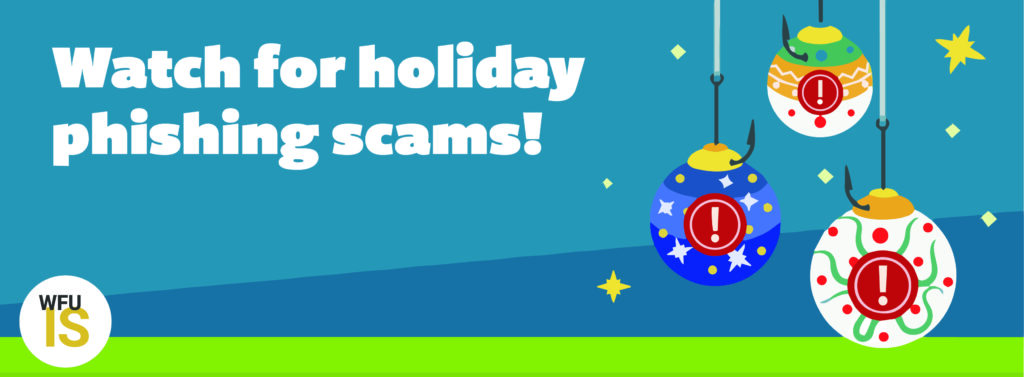Be Aware of Holiday Phishing Scams

It’s the holiday season, but there are scrooges among us who are trying to ruin this festive time of year with phishing scams.
Be mindful when replying to emails, texts, or phone calls because most phishing and fraud begin with these channels.
- Verify information is coming directly from a reputable source by confirming:
- There are no typos in the message
- The phone number/email address is associated with a real organization – look at their official website. Confirm through a phone call if something looks “off.”
- The URL does not have any extra characters (o001cfedeex [.] com instead of fedex.com)
- Be wary of texts or emails for an unexpected delivery. The Federal Trade Commission suggests tracking packages from the retailer’s website and verifying texts or emails that relay urgency by telling you “your package couldn’t be delivered and will be returned to the sender.”
- Avoid links and attachments associated with emails or SMS messaging
- Only respond if you are sure about the content or validity of an email; instead, forward the email to the WFU Information Systems Security Team at infosec@wfu.edu for further analysis.
Take action to protect yourself
- The IRS agrees that enabling multi-factor authentication on all your accounts is an easy step to add protection not only during the holidays but for any time of year. You should also be mindful to use strong and unique passwords for your online accounts and never repeat passwords.
- View your Wake Forest email in the Gmail web interface or Gmail app on your mobile device to leverage warning banners across suspicious messages.
- Use reputable companies when shopping online
Visit is.wfu.edu/infosec to learn more about recent phishing scams, and contact the Information Systems Security Team at infosec@wfu.edu with questions and concerns.

